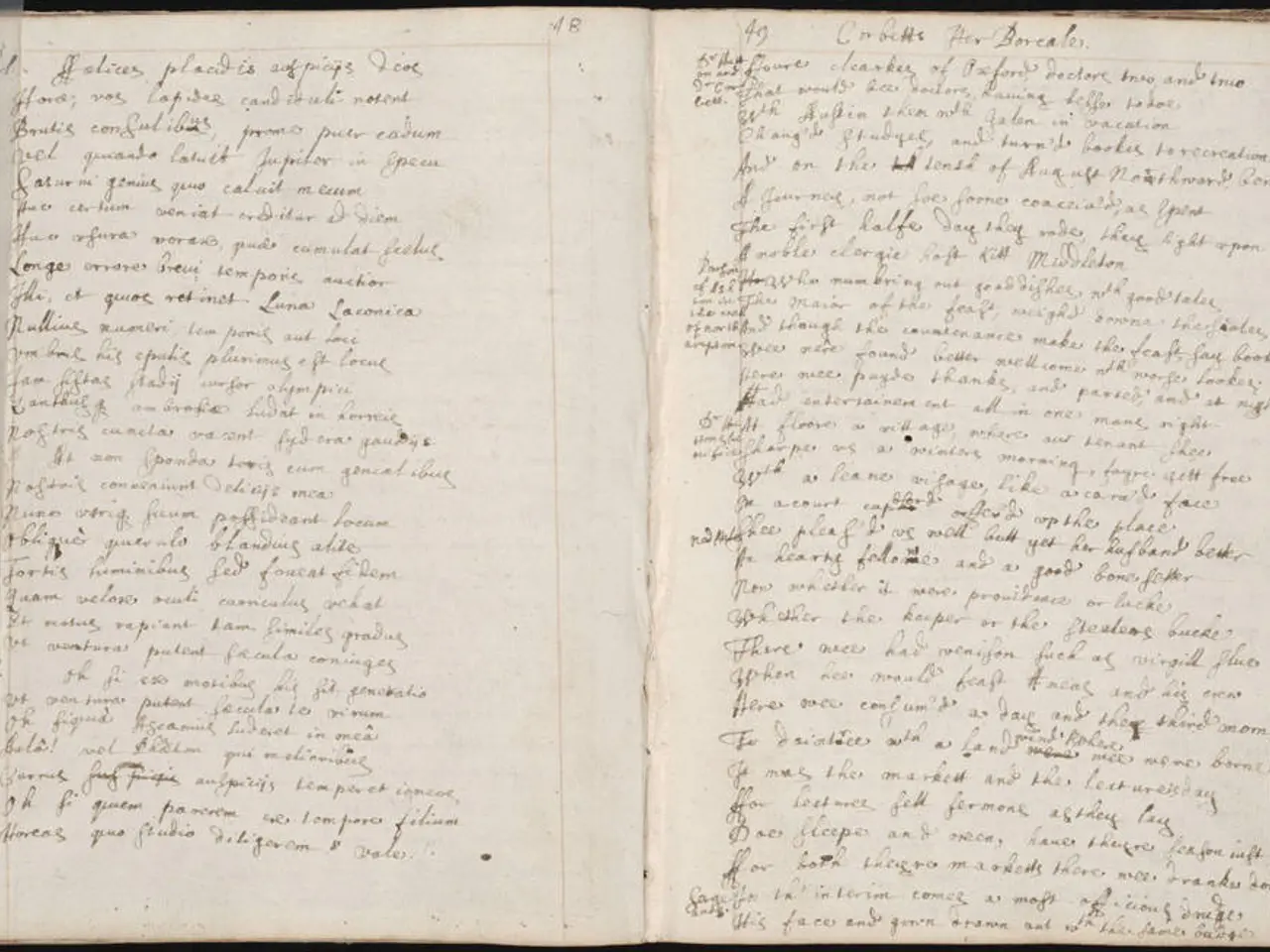Exploring the Concepts of Knowledge and Language within the Scope of Theory of Knowledge
In the realm of knowledge exploration, language plays a pivotal role in shaping our understanding of the world. This is particularly evident in the International Baccalaureate's Theory of Knowledge (TOK), where the impact of word choice, translation, and metaphor on understanding is a central focus.
Effective Knowledge Questions (KQs) in TOK often delve into the effects of translation and metaphor on meaning. A balanced argument could be about the role of precise terminology in advancing clarity in science versus the potential for ambiguity in language to foster misunderstanding or bias.
Guided resources like "How to Consider Implications in TOK Arguments and Conclusions" and "How to Reflect on Yourself as a Knower in TOK" offer tools to craft meaningful, reflective conclusions. These resources can help explore personal biases in word choice, translation, and comprehension, providing valuable insights into the role of language in shaping our knowledge.
The guide "Structuring for Success in IB TOK Essays" provides analytical templates that can help connect language and the different Ways of Knowing (WOKs) effectively. At least two Ways of Knowing should be analyzed to show layered insight into how language shapes thinking.
Research and theory highlight that language communities develop unique capabilities and perspectives for certain types of knowledge, affecting what knowledge is created and valued globally. For instance, studies analysing global knowledge production, such as on Wikipedia, show that scientific knowledge tends to be produced in a more standardized and uniform manner across languages, reflecting universal methodologies. In contrast, subjects like history and conspiracy theories are more fragmented and culturally bound, tied closely to geopolitical and linguistic communities.
The philosophy of language has long debated how language affects thought. The Sapir-Whorf hypothesis posits that language limits and shapes the way its speakers think about the world, meaning language constrains or enables certain concepts. This underscores the inextricable link between language and cognition, which naturally varies across Areas of Knowledge (AOKs) depending on the role language plays in their methodologies and concepts.
Language significantly influences meaning in knowledge creation across various AOKs. In History, language shapes how events are interpreted and conveyed, affected by cultural perspectives and the socio-political context. In the Human Sciences and Natural Sciences, language influences the formulation of concepts, definitions, and theories. In the Arts, language shapes aesthetic expression, meaning-making, and interpretation in complex socio-cultural ways. In Mathematics, language is more symbolic and formalized, limiting ambiguity, yet natural language still plays a role in explaining and contextualizing abstract concepts.
Meaning in language is dependent on context, purpose, and cultural knowledge of speakers and listeners. This pragmatic dimension is essential in understanding how language shapes knowledge, as different genres and communicative purposes result in variation in how knowledge is constructed and comprehended.
The dominance of certain language communities in knowledge creation can lead to biases that shape what is accepted as "global" knowledge. This raises challenges for inclusivity and diversity in global knowledge systems and underscores how language links knowledge to socio-political realities.
Real examples of language shaping knowledge can be drawn from personal experiences with dialects, bilingualism, or translation. Language promotes or limits shared understanding, and its ethical implications, such as linguistic manipulation in propaganda, should be evaluated.
For those seeking to excel in the Knowledge and Language theme, starting a free trial at RevisionDojo can unlock greater clarity in TOK. RevisionDojo offers resources specifically designed to help with the Knowledge and Language theme, including language-themed example banks, WOK integration frameworks, KQ-builder tools, reflective prompts, and analysis outlines.
In conclusion, language is not merely a neutral medium but an active force shaping the scope, structure, and interpretation of knowledge across different AOKs through its influence on cognition, culture, and communication. This relationship affects how knowledge is justified, validated, and disseminated within and across disciplines.
- Technology, as a means for communication and knowledge dissemination, can be influenced by language choices and translations, altering the way people perceive and interpret information in various Areas of Knowledge (AOKs).
- In education-and-self-development programs such as the International Baccalaureate's Theory of Knowledge (TOK), understanding the impact of language on our learning and thought processing could be central to fostering clear, unbiased, and culturally inclusive knowledge systems, aiding in our personal and global development.




